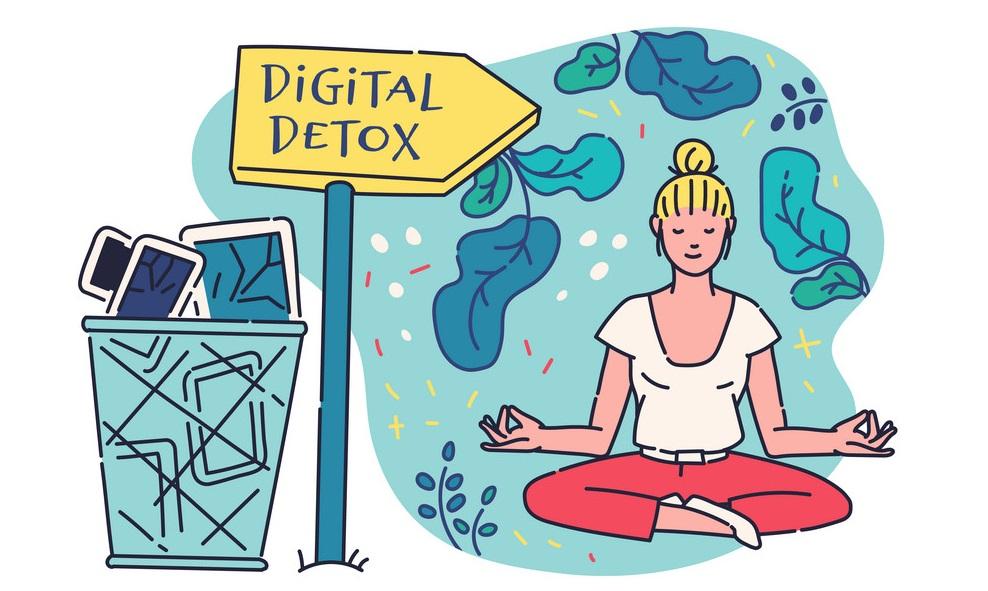In today’s hyper-connected world, it’s no surprise that many of us feel overwhelmed by the constant barrage of notifications, social media updates, and digital interactions. Enter the millennial generation with a dual focus that’s reshaping their approach to a more balanced life: digital detox and financial freedom. But how are these two seemingly unrelated goals connected? And what can we all learn from these shifts in lifestyle? In this article, we’ll explore how millennials are stepping back from their screens and stepping up their financial game, aiming for a healthier, more liberated way of living. Whether you’re a millennial yourself or just curious about this modern movement, stick around to see how disconnecting from the digital can lead to thriving in the financial.
Understanding the Need for Digital Detox
In today’s fast-paced world, millennials are constantly bombarded with online content, notifications, and social media updates. This always-on lifestyle can lead to mental fatigue, decreased productivity, and even burnout. Taking a step back from digital devices helps clear the mind, reduce anxiety, and improve focus. Moreover, it encourages us to be more present in the real world, fostering healthier relationships and promoting genuine social interactions.
Recognizing the importance of a digital detox is the first step towards a healthier lifestyle. Some benefits of unplugging include:
- Enhanced mental clarity
- Better sleep patterns
- Increased physical activity
- More personal time
Here’s a quick comparison to highlight the clear benefits of disconnecting:
| Before Detox | After Detox |
|---|---|
| Constant notifications | Reduced stress levels |
| Sleep disruptions | Better rest |
| Low productivity | Improved focus |
By understanding and embracing the need to disconnect, millennials can take meaningful steps towards achieving financial freedom and a more balanced life.
Practical Steps to Unplugging
One of the first practical steps to minimize screen time is by setting specific goals each day. You can start with:
- Turning off notifications: This keeps distractions at bay.
- Setting daily screen limits: Use apps that monitor and limit your usage.
- Scheduling tech-free times: Dedicate certain hours where screens are off-limits, like during meals or before bed.
Another effective approach is creating a separate, inviting space for unplugged activities. For instance, designate a cozy reading nook or outdoor spot. Incorporate activities such as:
- Reading a book: Dive into that novel you’ve been meaning to read.
- Walking or hiking: Enjoy nature and get some exercise.
- Practicing a hobby: Whether it’s painting, cooking, or knitting, indulge in something you love.
| Activity | Time Suggested |
|---|---|
| Reading | 30 mins |
| Exercising | 1 hour |
| Hobby | 1-2 hours |
How Disconnecting Boosts Your Finances
Disconnecting from our digital devices can surprisingly boost our finances in a number of ways. When we take a break from constant notifications and online shopping ads, we become more mindful of our spending habits. This mindful spending helps us differentiate between wants and needs, reducing impulse buys that drain our bank accounts. By simply limiting screen time, we’re less likely to fall into the trap of consumer culture, saving money that would otherwise disappear in a flurry of one-click purchases.
Here are a few practical ways disconnecting can impact your wallet:
- Lower utility bills: Less screen time means using less power, which can lower your electricity bill.
- Improved budgeting: More time offline gives you a chance to review your finances and plan your budget effectively.
- Fewer subscriptions: Taking the time to review recurring payments can help you cancel subscriptions you no longer use.
- DIY activities: Rediscovering hobbies or learning new skills from books can save money compared to paid digital services.
| Action | Potential Savings |
|---|---|
| Reducing Screen Time | $20/month on utilities |
| Canceling Unused Subscriptions | $10-$50/month |
| DIY Hobbies | $15-$30/month on entertainment |
Millennial Success Stories in Finding Balance
Millennials are redefining success by mastering the art of balance. This generation has realized that sometimes you need to disconnect to reconnect. By incorporating digital detoxes into their routines, many are finding improved mental health and stronger personal relationships. Here are some popular strategies they use:
- Scheduled Downtime: Setting specific hours for being offline.
- Weekend Blackouts: Turning off devices from Friday evening to Sunday morning.
- Device-Free Zones: Creating areas in the home where electronics are not allowed.
On the financial front, millennials are proving that freedom isn’t just a dream; it’s achievable with the right approach. By leveraging technology wisely and embracing a minimalist lifestyle, they’ve pioneered ways to manage money efficiently. Consider these practical steps:
| Strategy | Benefit |
|---|---|
| Automated Savings | Builds wealth effortlessly. |
| Side Hustles | Increases income streams. |
| Debt Snowball Method | Faster debt repayment. |
Q&A
Q&A:
Q1: What’s this whole ”digital detox” thing about?
A1: A digital detox is essentially when you take a break from your digital devices—like your phone, laptop, and even social media. It’s about unplugging to reduce stress, improve your mental well-being, and increase productivity. Kind of like a mental spa day, but for however long you need!
Q2: Why are millennials so into digital detoxing?
A2: Great question! Millennials grew up with the internet and smartphones, so they’re always plugged in. With constant notifications and the pressure to stay ‘on’ 24/7, it can get overwhelming. Digital detoxing helps them reclaim their time, focus on real-world activities, and improve work-life balance.
Q3: Okay, got it. But what’s this got to do with financial freedom?
A3: Glad you asked! When millennials disconnect from the digital world, they’re often more mindful of their lifestyle and spending habits. Without the constant influence of social media ads and the pressure to keep up with trends, they can focus on saving money and making better financial decisions. It’s like a chain reaction—less screen time can lead to more control over their finances.
Q4: Can you give an example of how disconnecting affects finances?
A4: Sure thing. Think about online shopping. If you’re always on Instagram or other social platforms, you’re bombarded with ads and influencer posts promoting the latest gadgets, clothes, and other stuff. By taking a break from these platforms, people are less tempted to make impulsive purchases. So, there’s a clear path from digital detoxing to saving money.
Q5: Are there any tips for someone looking to try a digital detox?
A5: Absolutely. Start small—maybe put your phone on ‘Do Not Disturb’ mode for a few hours each day. You can also designate tech-free zones in your home, like the dining room or bedroom. And don’t forget, it’s okay to tell friends and family that you’re taking a break from digital communication. They’ll understand!
Q6: How can someone transition from digital detox to achieving financial freedom?
A6: One step at a time! Use the downtime from your digital detox to educate yourself about personal finance. Read books, listen to podcasts, or take online courses about budgeting and investing. Set goals, track your spending, and stay consistent. With a clearer mind and objectives, financial freedom becomes more attainable.
Q7: Isn’t it ironic to use digital tools to learn about disconnecting?
A7: Haha, a bit! But the goal isn’t to ditch digital tools altogether, just to use them more mindfully. Once you feel you’ve gotten a handle on it, you’ll find ways to balance both worlds effectively. Plus, the internet is a fantastic resource for all things finance if used wisely!
Q8: Any final thoughts for our readers?
A8: Just remember, the whole point of a digital detox and aligning it with financial freedom is to improve your overall quality of life. It’s not about cutting yourself off from the world but finding a balance that works for you. Give it a shot, and you might be surprised at how beneficial it can be!
Feel free to share your own experiences or tips about digital detoxing and financial freedom in the comments. We’d love to hear from you!
Wrapping Up
As we navigate the ever-changing landscape of the digital age, it’s clear that the quest for balance is more relevant than ever. Whether it’s unplugging to find peace or strategizing for financial independence, millennials are showing that a mindful approach to technology and money can lead to a richer, more fulfilling life. So, if you’re feeling inspired, maybe it’s time to set aside some screen time and start crafting your path to both digital detox and financial freedom. After all, finding that sweet spot between tech use and life’s simple pleasures could be just the reset we all need. Until next time, happy disconnecting!


